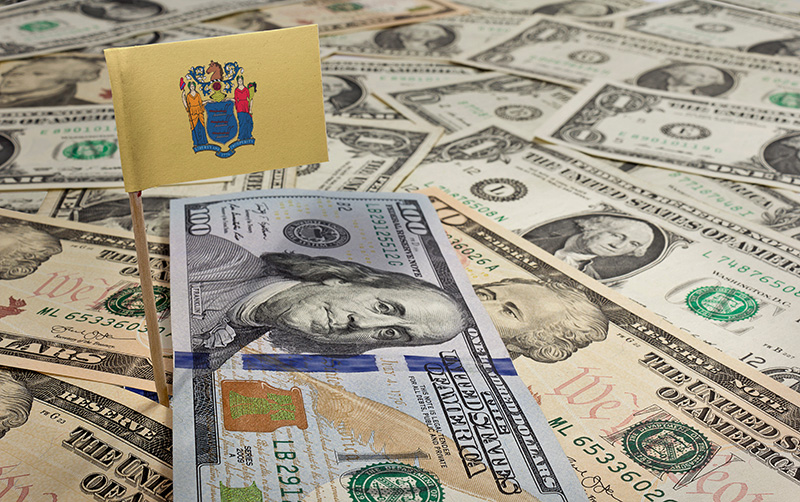NJ Estimated Tax Payments | What You Should Know
June, 18 2024 by Steve Banner, EA, MBA
Let me start by asking you a question - have you ever received a nasty surprise whe you finished preparing your tax return and found out you owe an unexpected load of money to both the IRS and New Jersey? I know this is not a nice thing to think about, but it does happen from time to time. These scary figures could be the result of a mistaken calculation while you were adding up your columns and numbers but, most often, the root of the problem is much simpler. The reason that you have a balance due is that you didn’t pay enough tax on your income during the year.
Many of us will never run into this problem because without even knowing it, we pay taxes on our income every time we receive our paycheck. The federal and state taxes that we owe on our salary are withheld by our employer, who then forwards those amounts to the IRS and New Jersey on our behalf. But this is not how it works for small business owners, independent contractors, and other self-employed taxpayers. For these folks, taxes are normally not withheld from the payments they receive, and thus, they have to make other arrangements if they don’t want to find themselves owing a small fortune in taxes at the end of the year. This is where the “estimated tax” system comes in, which allows individuals to make a tax payment up to four times each year based on their estimated income for the period. In other words, instead of scrambling to find the cash to pay a full year’s worth of taxes at the end of the year, you can break the total amount into four smaller chunks. It’s kind of like that old joke about elephants:
- Q. How do you eat an elephant?
- A. One bite at a time.
For those who are worried about choking on an enormous tax bill at the end of the year, estimated taxes may be made for any type of taxable income that has not been subjected to withholding. This can include things like earned income, dividend income, rental income, interest income, capital gains, and even income from cryptocurrency. It can also include income from your regular job if your employer does not withhold enough tax from your paycheck. There are rules and guidelines for whether or not an individual is subject to paying estimated tax. Of course, the New Jersey Division of Taxation wants to receive the taxes due from taxpayers, but it has set a threshold amount of $400 to manage the administrative burden for both taxpayers and the state.
That is to say, if you estimate that you will owe more than $400 in New Jersey income tax at the end of the year, you are required to make estimated payments.
It is also important to note that failure to make your required estimated payments could result in additional interest at an annual rate of 3% above the prime rate when you file your New Jersey Income Tax return. At the end of the calendar year, the balance on which interest is charged includes any tax, penalties, and interest that are still due.
But rather than run into problems such as those, let’s make sure we know how much to pay and when to pay it.
The form Declaration of Estimated Tax Voucher (Form NJ-1040-ES) can be used to calculate your total estimated tax for the year. When it comes to payment, you can pay your estimated tax either:
- in full by the due date of the first installment, or
- in four equal installments.
If you decide to choose the second option, the four equal payments are made quarterly, with specific payment due dates.
- April 15th;
- June 15th;
- September 15th; and
- January 15th of the following year.
If a due date for a payment falls on a weekend or legal holiday, that payment is due the following business day.
But if you use a fiscal year instead of the calendar year, your first three payments are due on the 15th day of the 4th, 6th, and 9th months of your fiscal year, followed by the final payment on the 15th of the first month of the next fiscal year.
You can make each estimated payment online or by mail. The online option allows you to make your payment:
- directly from your bank account, or
- by credit card (subject to a processing fee)
If you choose the option of mailing your payment, you will need to file a Declaration of Estimated Tax Voucher (Form NJ-1040-ES) along with your check or money order made payable to “State of New Jersey – TGI.”





